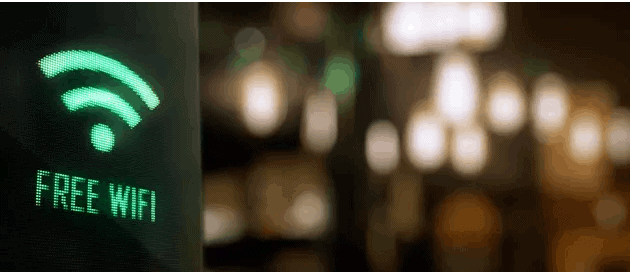So, you’re in a Starbucks, a restaurant, or even an airport. You connect to the nearest public WiFi access point, and you start surfing the web. Everything seems great – but is it?
When you’re connected to a public WiFi network, you could be connecting your device to malware, and anyone near you could access your information. You could have your passwords or financial information stolen, or even your private pictures and videos, whether you’re on a mobile device or your laptop.
You’re taking a gamble every time you connect to an unsecured network. So read on, and learn about the scary truth behind public WiFi, and how to protect yourself.
Public WiFi Networks – The Perfect Tool For Hackers
Nowadays, it’s hard to do anything without the Internet. Even when you’re traveling or on vacation, you may not feel truly “connected” unless you can pop open your laptop and connect to the web.
But this means that hackers have even more incentives to create malicious networks. Half of American adults have been hacked and had their personal information revealed. Often, learning how to do this is as simple as watching a YouTube video.
There are many different attacks that can be done on public WiFi networks. “Man in the middle” attacks send your information to a third-party computer when you use a public network, revealing personal info and passwords.
The same thing can be done by “snooping and sniffing” on unencrypted networks through malicious hotspots. In some cases, malware, such as a keylogger, can even be distributed through public WiFi networks.
How Can I Protect Myself?
Next time you see a public, unprotected WiFi network, consider the risks of having your personal or business data stolen and take steps to protect yourself, such as:
- Limit your activities on public WiFi – Avoid logging into financial institutions, shopping online, or accessing any other sensitive sites, like insurance sites, that require you to input your personal information (passwords, credit cards, etc.).
- Change your passwords frequently – Changing your passwords every month or two will prevent them from being used by hackers, even if they do get their hands on your personal information.
- Turn off WiFi when not in use – Don’t allow your computer or phone to search for hotspots without your approval. This will avoid the risk of connecting to a public WiFi.
- Use a VPN or SSL connection – VPNs encrypt your network traffic on public networks, and are ideal for protecting your data. Sites that support SSL (Secure Sockets Layer) connections (https vs http) are safe, as your network traffic is encrypted while using them.
- Consider a mobile hotspot – Buying an unlimited data plan for your phone, or a dedicated hotspot can allow you to connect all your devices wherever you are, without any public WiFi connections.
Protect Yourself From Data Theft!
If you keep using public WiFi networks, you will get hacked. It’s not a question of if – but a question of when it will happen. So follow these tips to protect yourself.
For more information about protecting your corporate data, please give us a call today at 303-770-8050.






